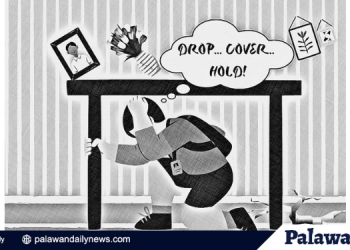We are living in a condition of multiple crunches and difficulties: health, economy, environment, and food security.
The COVID-19 pandemic uncovered the weaknesses of our public health system. Lockdowns ruined our economy by shutting down commercial establishments and forced employers to implement mass layoffs that displaced a substantial number of Filipino workers.
Russia’s invasion of Ukraine disturbed food prices and supply. This caused fuel prices and that of other basic goods to spike. This also exposed our drawbacks in food security.
The destruction caused by Typhoon “Odette” reminded us that climate change is the new normal.
What lies ahead for our country as the 2022 synchronized national and local elections draw near?
The May 9, 2022 elections can be considered a game-changer as it is expected to reboot the country’s pandemic response. We knew the fact that the COVID-19 pandemic is not yet over. If a new variant threatens another surge, there are better ways to respond than ordering another lockdown.
The new president and his appointed Department of Health (DOH) secretary could make decisive moves in handling pandemic response if they learn from the past two year’s mistakes. There should be evidence-based policies, social protection, and making sure public funds are not exposed to corruption.
The economic recovery of our country is dependent on the outcome of the elections. The next president will need to create jobs, attract investments and help businesses and industries.
Another major challenge for the next president is the full implementation of the Supreme Court’s Mandanas ruling in 2022, which will increase local governments’ share in tax revenues. Therefore, a system must be put in place to ensure transparency and accountability in the use of government funds from the national down to the local levels.
Our next president should also protect us from astronomically high prices of fuel and other basic commodities. Russia’s invasion of Ukraine exposed the country’s reliance on food imports. Its impact was abrupt and disastrous, especially in countries that are dependent on imported food and other products. Fuel prices escalated triggering the price increase of commodities that need to be transported, which is everything from food to raw materials and ingredients used in food. The crisis highlighted food insecurity in many countries including the Philippines
Our next president needs to deal with the escalating food prices on top of the other economic challenges.
Also, our next president should intensify the country’s disaster risk reduction and management capabilities.
The intensity of typhoons such as the likes of Typhoons Yolanda and Rolly were linked to the effects of climate change. And while many provinces of the country have not fully recovered yet from the fury caused by Odette, barely four months after, Agaton dowsed heavy rains in Leyte that caused massive landslides.
Let’s face it, climate change is likely to worsen the situation, with extreme weather events including typhoons posing various risks and threats to countries like the Philippines.
Countries that are most vulnerable to severe weather disturbances are also the least responsible for global warming. Developed countries that failed to reduce their emissions be obliged to give compensation to countries prone to natural calamities, as a matter of climate justice.
These realities should make us realize that we need a president who is an effective crisis manager, and our next president should prepare for the next big typhoon.
But before the next destructive typhoon hits the country, we can adopt measures to mitigate the impact of strong typhoons.
Impacts of floods can be reduced, for example, by investing in dams, dredging rivers, and managing solid wastes.
What is really needed is a people-centered adaptation to climate change, which takes into consideration people’s needs.
We should also face it that the sea-level rise occurred at a faster rate. Adaptation measures include building bridges and sea walls that are taller, residential buildings that are higher, and dealing with mass transportation systems that can withstand sea-level rise.
These are just a few of the serious problems that our country faced, and therefore, let us waste the chance of these elections for us to make change happen.


![[EDITORIAL] Let us vote wisely](https://palawandailynews.com/wp-content/uploads/2022/05/Editorial-5-4-750x375.jpg)
















Discussion about this post